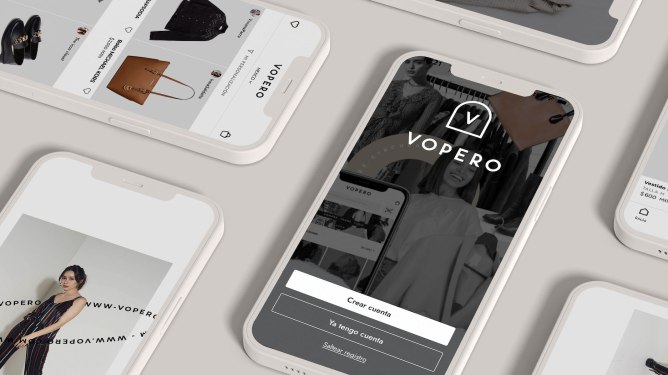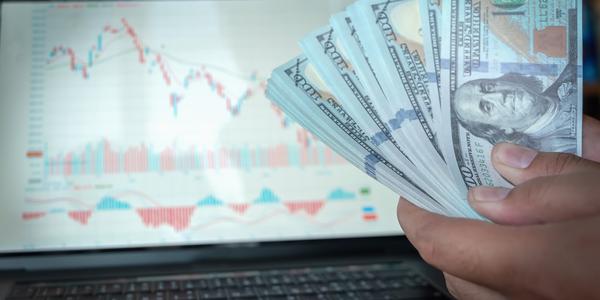The Rise of Sustainable Fashion: A Deep Dive into Vopero and the Reshaping of the Second-Hand Retail Market
The fashion industry has long been criticized for its environmental impact, driven by fast fashion consumption patterns. In recent years, however, there has been a growing shift toward sustainable practices, with consumers increasingly prioritizing ethical consumption over disposable spending. This trend has not only redefined what it means to "live sustainably" but also created new opportunities for innovation and profitability in the second-hand retail space.
One of the most notable players in this space is Vopero, a South American startup that specializes in connecting consumers with resale platforms, particularly within the luxury apparel market. Founded by Christophe Tchoukouo and Jean-Paul Nkoutcha, Vopero aims to revolutionize how people curate their wardrobes by offering a sustainable alternative to traditional retail. The company has garnered significant traction for its bold approach to waste reduction—moving beyond recycling to focus on the responsible reuse of luxury goods.
The Second-Hand Retail Market: A New Frontier
The second-hand retail market is experiencing exponential growth, driven in part by changing consumer behavior and the increasing availability of online platforms that facilitate access to used goods. According to recent data from consulting firm McKinsey & Company, the global used apparel market is projected to reach $365 billion by 2030, with North America leading the charge at over $79 billion in revenue. This growth is not only economic but also reflective of a broader cultural shift toward valuing what you wear less than how you live.
The rise of platforms like Vopero has been instrumental in this transformation. By providing consumers with access to high-end resale items, these companies are helping to reduce waste while encouraging ethical consumption practices. For luxury brands that have traditionally leaned away from sustainability due to the perceived impracticality of responsible reuse, Vopero represents a lifeline. The company’s ability to curate and market its inventory has allowed it to attract a loyal customer base among fashion enthusiasts who prioritize sustainability.
Vopero: A Model for Sustainable Luxury
Vopero’s success is rooted in its innovative approach to the resale business model. Unlike traditional resellers, the platform focuses on creating value through careful curation and ethical practices. By partnering with luxury brands to offer items that are as exclusive as they once were but in a second-hand context, Vopero has positioned itself as both a purveyor of high-quality goods and a symbol of sustainability.
The company’s mission is centered around the idea of "vertical integration"—ensuring that all elements of the value chain—从 production to resale—are managed with an eye toward environmental and ethical considerations. This includes not only sourcing materials responsibly but also taking care of the end-of-life phase by ensuring items are reused or recycled in a manner that minimizes environmental impact.
Vopero’s commitment to sustainability has been reinforced through its use of cutting-edge technology and data-driven decision-making. For example, the platform uses advanced algorithms to match customers with items that align with their preferences while also minimizing environmental impact. This not only enhances the customer experience but also ensures that resources are being used as efficiently as possible.
Expanding Horizons: Franchising and Global Expansion
A key driver of Vopero’s growth has been its strategic focus on franchising and physical retail presence. The company is currently in discussions with major department stores across South America to open physical boutiques, aiming to expand its reach within the next year. These physical spaces will serve as "kiosks" where customers can interact with Vopero’s resale offerings and gain insights into sustainable living through guided conversations.
The success of these physical initiatives has been bolstered by Vopero’s use of influencers and micro-influencers, who are playing a pivotal role in spreading the company’s message. With over 450 active influencers on its platform, Vopero is leveraging social media to educate consumers about the importance of sustainability while also generating buzz around its resale offerings.
Ethical Fashion: A New Era
Vopero’s efforts align perfectly with the broader trend toward ethical fashion—a movement that seeks to address some of the most pressing environmental and social issues facing the industry. By creating a platform that prioritizes sustainability, Vopero is helping to pave the way for a future where luxury fashion remains accessible without compromising on ethics.
The company’s success has also inspired other luxury brands to consider sustainable practices in their own supply chains. For instance, several high-end fashion houses have begun collaborating with Vopero to offer resale options within their product lines, creating an additional avenue for consumers to engage with ethical consumption.
Conclusion
Vopero is not just a company that is making waves in the second-hand retail space; it is also a trailblazer in the broader movement toward sustainable luxury. By combining innovative technology with a strong commitment to environmental and ethical practices, Vopero has redefined what it means to live sustainably while offering consumers an unparalleled opportunity to curate their wardrobes in a responsible way.
As the fashion industry continues to evolve, companies like Vopero are playing a crucial role in shaping the future of sustainability. By setting an example through its innovative business model and strong commitment to ethical practices, Vopero is helping to pave the way for a new era of sustainable luxury that values both quality and environmental responsibility.
For more information about Vopero, please visit https://www.vopero.com.
Citations:
- McKinsey & Company. (2023). Global Used Apparel Market Report. Retrieved from https://www.mckinsey.com



